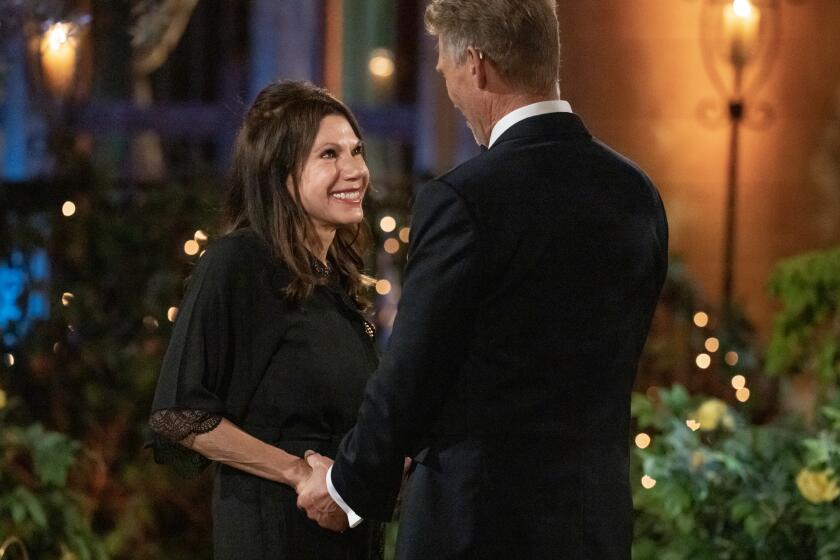Can the music industry sue its way to profit?
In their final exchange, Hanson and Rosenthal focus on the history of copyright lawsuits. Previously they debated promotion on the internet, webcasting economics, the distinctions between online and broadcast radio and whether webcasting should be open to hobbyists.
A smack in the head is what you should get!
By Jay Rosenthal
Kurt,
If I were you I would be a little put off by today’s topic. It suggests that webcasters have a kinship with the online criminals from Grokster who hide from lawsuits and the authorities in the jungles of Vanuatu and other pristine offshore jurisdictionsright next to the drug kingpins and Internet gambling syndicates. I know it is incredibly fashionable to give a pass to really clever kids who can create new technologies that trample on the rights of artists, but I really don’t think that a “free ride” webcasting community emulating the Groksters of the world should be viewed as offering a legitimate answer to plummeting saleseven if they make toys that everyone wants to play with.
It is significant that even Napster founder Shawn Fanning has seen the light. He now promotes a pay service, and he has learned a hard lesson in the process. Just because you can create a new technology, doesn’t mean that you check your sense of legal and moral responsibility at the door.
Do webcasters really want to emulate Napster and Grokster? Do they want to turn webcasting into a form of “fair use” that will contribute to further bankruptcy of modern recording artists?” Do they really want to be part of a movement that has turned a generation of kids into a bunch of morally bankrupt punks who think they are entitled to free music? I don’t think so, but sometimes I am not sure.
To some this may sound crazy, but I sincerely am starting to hate the Internet. I know you see the Internet as some incredible invention that has opened the door to unlimited distribution of musicand your lofty goal is to bring music to as many as possible. But all I see is a tidal wave of artist abuse. And the thought of webcasters emulating the Groskters of the world, and being given a free pass just reinforces my view that the Internet is not becoming a beacon of light, but a cesspool of darkness. I don’t think it is overstating it by concluding that illegal file sharing is the direct cause of the greatest campaign of copyright infringement in history, and has resulted in the music industry’s being devastated. There is really no disagreement among legal scholars that illegal file sharing is copyright infringement. And the Supreme Court has ruled that those creating the technology and inducing users into the act of unauthorized file sharing are engaging in secondary copyright infringement.
And now the question is why we don’t allow webcasters to do the same thing as Napster and Grokster, but without protest. We should just back off. We should allow them to use the music without payment, perhaps calling it a form of “fair use” or rationalize it as promotionwhich will surely result in an explosion of music sales or increased touring revenue or loads of merchandise sales or whatever.
Anyone suggesting that webcasters be given a free pass because sales are still reeling after the experience of Napster and Grokster must believe that artists are lemmings racing for the cliff. Artist’s rights have been brutalized. The music industry has been devastated. And both kids and parents of an entire generation believe that music should be free. And that we should just do it again with webcasting.
This is no time to give into anarchy. We must stand for the proposition that the development of any new technology not incorporating the legal and moral obligation to pay artists for their music is an immoral and incomplete technologydeserving of nothing less than an energetic lawsuit, and perhaps a smack in the head.
Jay Rosenthal is a partner with the Washington DC law firm Berliner, Corcoran & Rowe, LLP; co-legal counsel to the Recording Artists’ Coalition; and a SoundExchange board member. He also represents numerous recording artists, independent record companies, producers, songwriters and independent film companies and is an adjunct professor of entertainment law at the George Washington University School of Law and at the Washington College of Law of the American University.
Ay yi yi!
By Kurt Hanson
Jay, I think you misinterpreted our assigned question todayI don’t believe the question was trying to imply that U.S.-based webcasters are analogous to copyright infringers from the jungles of Vanuatu.
Rather, I think it’s intending to ask whether it’s in the music industry’s best interest to respond to every new development with aggressive, hardball, take-no-prisoners lawyering.
And I believe the evidence of the past few years shows plenty of examples where a more thoughtful and restrained approach would have been a lot more helpful and productive.
The best example of your industry’s mode of self-inflicted damageone that will be taught as a case study in business schools for years to comeis how you guys dealt with the original Napster.
As you of course know, Napster was the first popular peer-to-peer file sharing service, using an approach in which central servers maintained lists of connected PCs and the files available on those PCs and fed everything through an attractive online interface. Napster had about fifteen months of success; it started achieving mass-market popularity early in 2000 and was shut down by a successful RIAA-instigated lawsuit in July 2001.
I will totally agree with you that the Napster and its users comprised one giant morass of copyright infringement, and that your legal departments had every ethical and legal right to force it to shut down if you wanted to.
But, Jay, there’s a huge difference between having the right to do something and having it be the right thing to do!
First, consider the timeframe of events: The year in which Napster was at its peak was also the best year of album sales in the history of the U.S. music business! Had all this rampant copyright infringing been hurting you, as consumers downloaded billions upon billions of song files, one would have expected to see a corresponding decline in CD sales. In fact, according to Nielsen SoundScan, you sold almost 800 million albums in 2000. Let me repeat: Your best year ever!
If you think like a lawyer, you see copyright infringement, so you file a $20 billion lawsuit (as you did) to try to stop it.
But if you think like a marketer, you might observe that people were getting exciting about music againboth discovering new bands and rediscovering bands they hadn’t thought about in yearsand you would notice that sales were actually going up, and you might think, “This may be copyright infringement, but it seems to be working to my advantage... So maybe I should sit on my hands a little bit here... I gotta find a way to take advantage of this!”
But you didn’t. You guys sued to shut ‘em down.
All of what I just said was looking at it from marketing perspective. But I believe your industry’s lawyers made a much, much bigger mistake from a technology perspective.
Napster’s approach, as I mentioned above, used central servers to maintain lists of connected PCs and the files on them. That meant it was controllable. The people running the system knew how many files were being downloaded and which titles they were. Eventually, at least theoretically, you could have worked out a deal that would have allowed you to get compensated.
I know there were some record industry attempts at negotiating with Napster management, but meanwhile you were aggressively pursuing the lawsuit and the injunction to shut them down. And by the time it looked like the resolution was going to simply be that court-ordered shutdown, it was clear to everyone in the tech worldand clearly reported in the business and popular pressthat if you did shut Napster down, it would open up a whole new generation of much-worse-for-you P2P services.
The new services that were waiting in the wingsGnutella, LimeWire, Grokster, FastTrackwere decentralized networks, meaning that once the software was out there and in use, there was no way to control it or turn it off. And no way to track what was going on. And no conceivable way to monetize it.
So everyone who knew anything about technology told you, “Don’t shut down Napster. It will be replaced immediately by a new generation of P2P services that will be much worse for you. You’ll be sorry! Don’t do it!”
But you could...so you did.
Jay, your industry’s “success” here brings to mind what would have happened if the film industry had succeeded in its efforts to block the development of the home video industry. Had those lawyers succeeded, they would have deprived their companies of a future revenue stream (VHS and DVD sales) that’s now worth billions of dollars a year. Your lawyers did succeed in shutting down the centralized service, so by forcing P2P file sharing into an uncontrollable environment, they deprived your companies of what could have eventually become a multi-billion-dollar revenue stream of monetized file sharing.
Simultaneously with all of this court action, changes were going on in society, and with competition, and in technology.
Some of the changes were challenges: 1) The boy bands, rock-rap, and hip-hop musical trends were all starting to fade, and no hot new trends were bubbling up to replace them. 2) DVDs and DVD box sets were taking off in popularity, offering a much better value in terms of content-per-dollar than CDs; similarly, videogames (such as PlayStation) were also taking off in popularity, with games offering a much better value in terms of hours-of-entertainment-per-dollar than CDs. 3) CD sales were moving from specialty stores, where they could be enthusiastically pitched by knowledgeable salespeople, to “big boxes,” where they were just presented as a loss leader.
But some of the changes were opportunities: 1) Apple introduced a popular portable music player, the iPod, that held thousands of songs. 2) It became technologically possible to sell tracks and albums online, removing all of the costs of manufacturing and distribution from the sales process. 3) Thousands of largely “long tail”-format Internet radio stations began to spring up, promoting the sales of the songs they were playing more vividly and effectively than any other form of radio ever had before. So how did you guys respond? Did you address the challenges or try to exploit the opportunities? Noyou kept suing!
Although there was no solid evidence that P2P file sharing was hurting record sales while there was a roughly 10% decline in album sales in 2002, it was precisely concurrent with the fading of those three hot musical trends, plus increased competition for the consumer’s dollar from DVDs and videogamesyou started a “public relations” campaign (in the most ironic use of the term ever) program of suing your customers for copyright infringement!
And the result of your efforts? While you’re damaging thousands of people’s lives (not the serious infringers, mind you, just the innocents and neophytes who don’t know enough to turn off the sharing of their own folders), file-sharing continues largely unabated. Meanwhile, you get the reputation of being the worst industry in America (so consumers look for reasons not to buy things from you), you get distracted from the real issues that are hurting your business (price competition, etc.), and you don’t take advantage of the opportunities that fate has thrown your way (music players that hold 20,000 songs, Internet radio, etc.).
Cracking down on web radio, as your industry is doingyou seem perfectly happy to let AOL Radio and LAUNCHcast be shut down and Pandora and Live365 (with its 10,000 member-webcasters) be bankruptedis going to be another case study in business schools.
This crackdown is actually even worse than the others, because in this case you guys probably really know that Internet radio is good for you. But you’re lawyersdeal guys and litigators. Your natural instincts are to “win” as big as you can. Like the scorpion that bit the frog that was ferrying him across the river, it’s your nature.
And the result that’s only a month away? You’ll kill off 80% of the industry, CD sales will go down an additional notch, and then you’ll complain that CD sales are declining. Just as with the Napster lawsuit, you’ll win but you’ll lose.
Now let me quit my speechifying and address a couple of the specific points that you made today, Jay.
In your essay above, you described today’s younger generation as “a bunch of morally bankrupt punks who think they are entitled to free music.” I’m sure that’s a perfect representation of the attitudes of the people running the music industry, but that’s not the kind of attitude that’s going to help sell anything to them! In our debate a couple of days ago, I pointed out that a teenager today has an iPod that holds 20,000 songs and that $1.00 to $1.30 per song seemed like too high a price point, since he can’t really afford to spend $26,000 on the music to fill his $300 player. He’s not morally bankrupt; it’s just that your pricing is insane!
You write, “I know you see the Internet as some incredible invention that has opened the door to unlimited distribution of music... But all I see is a tidal wave of artist abuse.” Ay yi yi! You are not seeing the forest for the trees. I have an upcoming analogy about a flood that will speak to this issue.
To go on, “Illegal file sharing is the direct cause of the greatest campaign of copyright infringement in history, and has resulted in the music industry being devastated.” The first half of the sentence, maybe. The second half? There’s no proof of that at all! The moderate declines in CD sales you’ve seen over the past six years are totally consistent with the probable effects of other phenomenathe lack of any hot new musical trends, DVDs becoming an increasingly better competitive value, a desire of consumers to buy tracks online (at a perceived-as-reasonable price, though), and so forth. You’re drawing a causal relationship that you have no proof exists.
You wrote, “And now the question is why we don’t allow webcasters to use the music without payment.” That’s a total mischaracterization! No one is asking that question! Webcasters aren’t proposing to not pay a performance royalty at allwe’re just pointing out that the rate you asked for, litigated, and won is so high that it would bankrupt the industry...and that shutting the industry down would probably be bad for all of us.
Finally, you conclude with the rallying cry, “This is no time to give into anarchy” and propose “an energetic lawsuit, and perhaps a smack in the head.” Yes, exactlythat’s a perfect summation of the record industry’s modus operandi.
But think how much better off you would be if you actually tried savvy marketing and pricing and PR instead.
I’d like to end my piece of our conversation for the week with one final story:
Woman’s caught in a flood, clinging to a tree. Two kids come by floating on a door, offer to help her; she says, “No thanks, God will take care of me.” Big dog swims by, gets close to her in a helpful way; she says, “No thanks, God will take care of me.” Woman drowns. She gets to heaven and asks God, “Why didn’t you take care of me?” God says, “What? I sent you a two kids, a door, and a dog!”
Now the record industry is complaining that sales are in decline. But God has created MP3 players that hold 20,000 songs. Plus introduced a new form of distribution systemdownload salesthat removes all of the costs associated with the shipment of physical goods. Plus created thousands of new radio stations in hundreds of “long tail” formats (with vivid “now playing” information and “buy it now” links). Record industry says, “No thanks, I’m a lawyer; I’ll litigate.” Record industry dies. It gets to heaven (maybe) and asks God, “Why didn’t you take care of me?” God says, “What?!? I sent you iPods, download sales, and Internet radio!”
Jay, it’s been a fun week. Thanks.
Kurt Hanson is Publisher of RAIN: Radio And Internet Newsletter, the leading trade publication for the field of Internet radio, and CEO of AccuRadio.com, a popular multichannel Internet radio property that reaches almost half a million unique listeners per month. He previously worked at WLS/Chicago and WLUP/Chicago.
| | | | Day 5
More to Read
The biggest entertainment stories
Get our big stories about Hollywood, film, television, music, arts, culture and more right in your inbox as soon as they publish.
You may occasionally receive promotional content from the Los Angeles Times.






